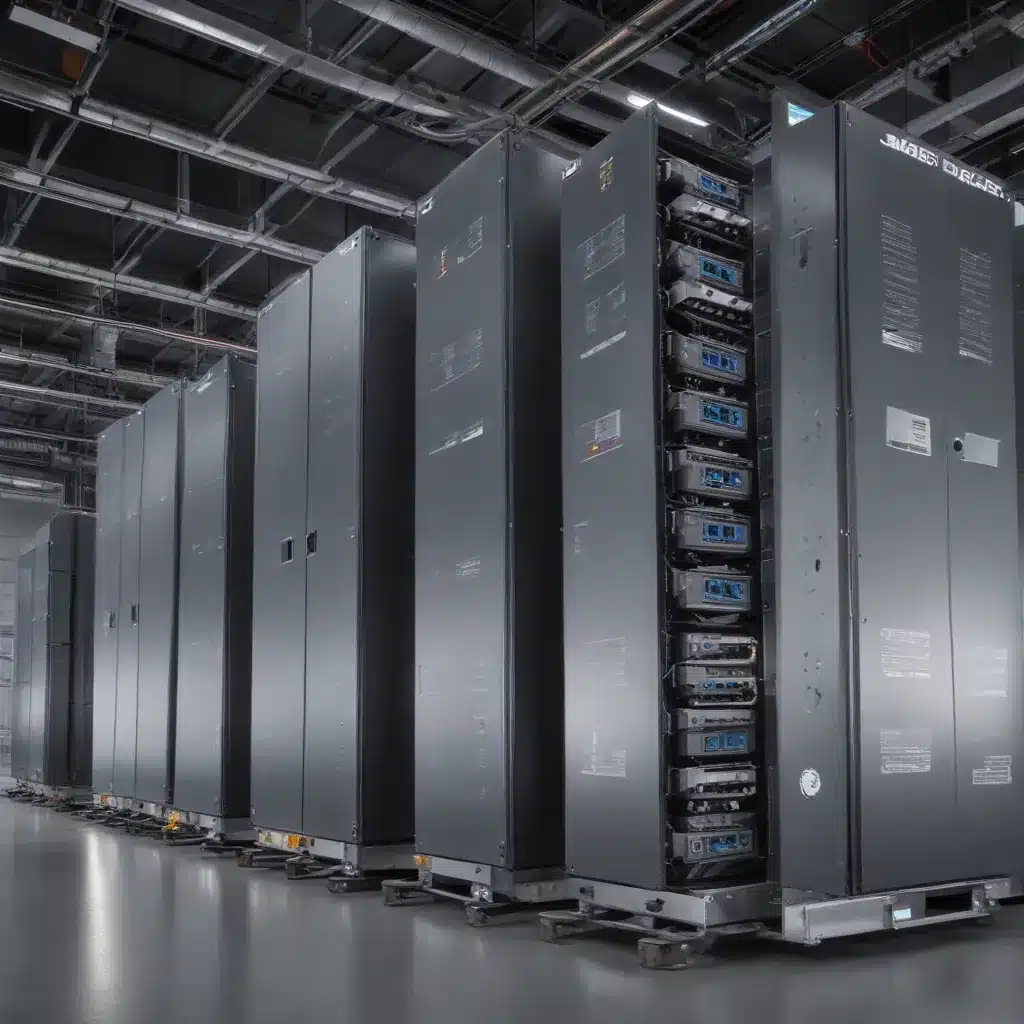
The Importance of Efficient EV Charging Infrastructure
As the adoption of electric vehicles (EVs) continues to surge, the management of charging infrastructure has become increasingly crucial. One of the most effective strategies to optimize power distribution and ensure a reliable charging experience is the implementation of intelligent electrical load balancing.
EV charging load balancing is an advanced energy management technique that dynamically allocates available power across multiple charging stations. By efficiently distributing the electrical load, this system ensures that all connected vehicles receive sufficient charging capacity without overloading the underlying infrastructure.
Consider a scenario where a parking facility is equipped with 10 EV charging stations and a total capacity of 100 kW. Without load balancing, the power distribution could quickly become imbalanced and inefficient, leading to potential issues such as overloads, longer charging times, and user frustration.
However, with an intelligent load balancing system in place, the available power is dynamically allocated based on the needs of the connected vehicles. This dynamic allocation ensures optimal power distribution while maintaining the overall system capacity, enabling more vehicles to charge simultaneously without compromising efficiency.
The Benefits of Intelligent Load Balancing
Implementing an advanced EV charger load management system offers numerous benefits for organizations and EV owners alike:
-
Maximized Efficiency: By intelligently distributing the electrical load, the system ensures that the available power is utilized to its fullest potential. This optimization prevents overloads, minimizes energy waste, and maximizes the number of vehicles that can be charged concurrently.
-
Cost Savings: Efficient power distribution translates to reduced operational costs. Load balancing helps avoid the need for costly infrastructure upgrades, as the existing electrical capacity can be better leveraged to accommodate a growing EV fleet.
-
Improved User Experience: With load balancing, EV owners enjoy a seamless charging experience, with consistent charging speeds and reduced waiting times. This enhances customer satisfaction and encourages further EV adoption.
-
Scalability: As the EV market continues to expand, an intelligent load balancing system enables organizations to scale their charging infrastructure more effectively. The system can adapt to increasing demand without sacrificing performance.
-
Grid Stability: By optimizing power distribution, load balancing helps minimize the impact of EV charging on the electrical grid, reducing the strain on the overall system and contributing to improved grid stability.
Implementing Intelligent Load Balancing
To integrate a robust load balancing solution into your EV charging infrastructure, consider the following steps:
-
Assess Your Charging Needs: Carefully evaluate your current and projected EV charging requirements, taking into account factors such as the number of charging stations, peak usage patterns, and available electrical capacity.
-
Select the Right EV Charger Load Management System: Research and compare advanced EV charger load management solutions that offer dynamic load balancing capabilities. Look for features such as real-time monitoring, adaptive power distribution, and compatibility with your existing charging infrastructure.
-
Ensure Seamless Integration: Work closely with your EV charging provider to ensure the load balancing system is seamlessly integrated with your charging stations, electrical system, and any relevant energy management platforms or software.
-
Optimize and Scale: Continuously monitor the performance of your load balancing system and make adjustments as needed to optimize efficiency, cost savings, and user experience. As your EV charging needs evolve, leverage the scalability of the load balancing solution to accommodate growth.
The Future of EV Charging Load Balancing
As the EV landscape continues to evolve, we can expect to see several advancements in load balancing technology:
-
Predictive Algorithms: Intelligent load balancing systems will incorporate more sophisticated predictive algorithms, leveraging data on driving patterns, charging habits, and grid conditions to anticipate and optimize power distribution.
-
Integration with Renewable Energy: Load balancing solutions will increasingly integrate with renewable energy sources, such as solar and wind, to create a more sustainable and resilient charging ecosystem.
-
Bidirectional Charging: The development of bidirectional charging capabilities will allow EVs to not only receive power but also contribute energy back to the grid, further enhancing the efficiency and flexibility of the overall system.
-
Autonomous Coordination: Load balancing systems will become more autonomous, with the ability to self-regulate and coordinate charging sessions across multiple charging stations without the need for constant human intervention.
-
Enhanced User Experience: Advancements in load balancing technology will result in an even more seamless and user-friendly charging experience, with faster charging times, reduced waiting periods, and greater reliability.
By embracing intelligent load balancing, organizations can optimize their EV charging infrastructure, improve operational efficiency, and contribute to a more sustainable and resilient electrical grid. As the EV market continues to grow, these advanced energy management techniques will play a pivotal role in shaping the future of electric transportation.
Explore Volt Watt Electric’s Smart Home Solutions
At Volt Watt Electric, we are committed to empowering our customers with cutting-edge electrical solutions that promote energy efficiency, sustainability, and cost savings. From intelligent load balancing for EV charging to a comprehensive suite of smart home devices, our team of experts is dedicated to helping you navigate the evolving landscape of electrical technology.
Discover how our advanced smart home products, such as energy-efficient appliances, smart thermostats, and home automation systems, can transform your living space into a hub of intelligent energy management. Explore our resources to learn more about the benefits of sustainable energy solutions and the latest trends in smart home technology.

